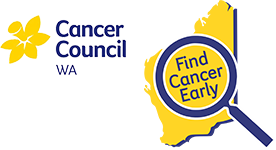If you are experiencing any possible cancer symptoms, it is important that you tell your doctor, clinic nurse or Aboriginal health worker.
Often, when people decide to make an appointment, lots of different questions and concerns can pass through their mind:
- The doctor or health worker is always too busy. It’s too hard to get an appointment
- When I get to my appointment my mind goes blank
- What could happen when I see the doctor or health worker?
- I don’t have a doctor or health worker
- Where else can I get advice?
Remember, health professionals are there to help you. Don’t be embarrassed to let them know about any unusual changes you’ve noticed in your body. There’s no reason to put it off telling them.
Be clear about your symptoms
When describing your symptoms to the doctor, clinic nurse or Aboriginal health worker, be clear and concise. The information you provide will help them identify what’s going on to point them in the right direction. With your help, your health professional will have a clearer idea of which questions to ask and which physical examinations and medical tests might be required.
You know your body better than anyone else, so it’s up to you to let the health professional know about any changes you’ve noticed.
The doctor, clinic nurse, or health worker is always too busy. It’s hard to get an appointment
People sometimes think that it’s hard to make an appointment because their doctor, nurse, or health worker is too busy. But this is not always the case. If you need to see a health professional you should always call and try to make an appointment. Calling early in the morning is often the best time to arrange an appointment. If your usual health professional can’t see you on the day, you can make an appointment for a few days time, or ask to see another doctor, nurse, or health worker in the same practice.
If you feel that you need to talk to a doctor, nurse, or health worker straight away let the receptionist know that it is urgent when you call. Or ask to speak to the doctor, nurse, or health worker, so you can tell them your concern. If you can’t get an appointment and are really worried, you could contact your nearest hospital. However, few symptoms are emergencies so you can usually afford to wait a few days to see your doctor, nurse, or health worker.
When I get to the appointment my mind goes blank
Quite often, we get to the appointment and can’t remember everything we wanted to tell them. So it can be helpful to write down – before you go – why you’ve made the appointment and what you want to let your health professional know about.
You might find it helpful to keep a symptom diary – a record of what’s been happening, how long it’s been going on for, and how often it occurs. You could take this with you to the appointment and use it to help you tell them what’s been going on.
When we speak to the health professional we often only tell them about the things that we think are important. But they need to know about everything that’s been happening, even if you don’t think the symptoms are related. For example, you may visit your health professional for a long-standing cough and not think to mention that you have also been feeling tired and/or lacking energy. It is important to tell them everything that has been happening, even if you don’t think the symptoms are related. Both of these symptoms are common symptoms of lung cancer.
Writing everything down before your appointment, or keeping a symptom diary, can help you be sure you are telling your doctor, nurse or health worker all that you’ve noticed so they can decide if it is serious or not.
What could happen when I see the doctor or health worker?
What will happen depends on what they find.
- Your doctor, nurse or health worker might be able to reassure you straight away that there’s nothing serious to worry about. If you have any lingering concerns or a ‘gut feeling’ that something is not right, visit your health professional again to insist on further testing or see another doctor, clinic nurse or health worker for a second opinion. Even if it means traveling to the next town.
- Your doctor, nurse or health worker may send you for tests or refer you to the hospital to find out more about what’s going on.
- Your doctor, nurse or health worker may ask you to come back if things haven’t got better in a couple of weeks or so. This is because you sometimes need to allow time for things to sort themselves out on their own. If they don’t clear up, or if they change or get worse, it’s important to go back to your health professional. They may refer you on for further tests to find out what’s happening.
I don’t have a doctor, clinic nurse or health worker
If you don’t have a usual health professional don’t worry. To find a health service in your local area you can:
- Look in the white or yellow pages, or your local directory
- Call Healthdirect Australia on 1800 022 222
- Contact your nearest health centre or Aboriginal Medical Service
- Contact your local shire or council
- Contact your local Community Resource Centre
- Contact the nearest hospital.
Where else can I get advice?
If you notice anything unusual, there are other people who can give you advice:
- Cancer Council WA cancer nurse phone line 13 11 20
- The nurse practitioner
- The pharmacist.
But remember, always make an appointment with your doctor, clinic nurse or health worker if your symptoms don’t go away.
![]()
